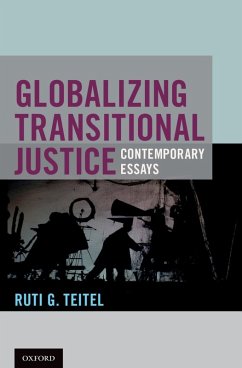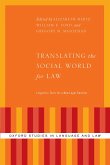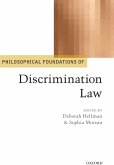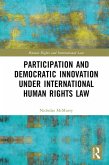Among the most prominent and significant political and legal developments since the end of the Cold War is the proliferation of mechanisms for addressing the complex challenges of transition from authoritarian rule to human rights-based democratic constitutionalism, particularly with regards to the demands for accountability in relation to conflicts and abuses of the past. Whether one thinks of the Middle East, South Africa, the Balkans, Latin America, or Cambodia, an extraordinary amount of knowledge has been gained and processes instituted through transitional justice. No longer a byproduct or afterthought, transitional justice is unquestionably the driver of political change. In Globalizing Transitional Justice, Ruti G. Teitel provides a collection of her own essays that embody her evolving reflections on the practice and discourse of transitional justice since her book Transitional Justice published back in 2000. In this new book, Teitel focuses on the ways in which transitional justice concepts have found legal expression, especially through human rights law and jurisprudence, and international criminal law. These essays shed light on some of the difficult choices encountered in the design of transitional justice: criminal trials vs. amnesties, or truth commissions; domestic or international processes; peace and reconciliation vs. accountability and punishment. Transitional justice is considered not only in relation to political events and legal developments, but also in relation to the broader social and cultural tendencies of our times.
Dieser Download kann aus rechtlichen Gründen nur mit Rechnungsadresse in A, B, BG, CY, CZ, D, DK, EW, E, FIN, F, GR, HR, H, IRL, I, LT, L, LR, M, NL, PL, P, R, S, SLO, SK ausgeliefert werden.









